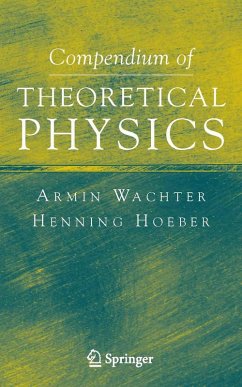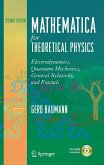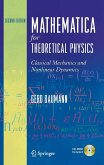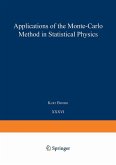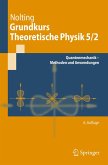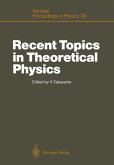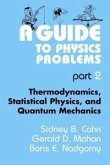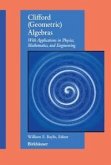Mechanics, Electrodynamics, Quantum Mechanics, and Statistical Mechanics and Thermodynamics comprise the canonical undergraduate curriculum of theoretical physics. In Compendium of Theoretical Physics, Armin Wachter and Henning Hoeber offer a concise, rigorous and structured overview that will be invaluable for students preparing for their qualifying examinations, readers needing a supplement to standard textbooks, and research or industrial physicists seeking a bridge between extensive textbooks and formula books.
The authors take an axiomatic-deductive approach to each topic, starting the discussion of each theory with its fundamental equations. By subsequently deriving the various physical relationships and laws in logical rather than chronological order, and by using a consistent presentation and notation throughout, they emphasize the connections between the individual theories. The reader's understanding is then reinforced with exercises, solutions and topic summaries.
Unique Features:
Armin Wachter holds a Ph.D. in Physics from the John von Neumann Institute for Computing (NIC) / Research Centre of Jülich, Germany. His research interests include theoretical elementary particle physics, heavy quark physics, heavy meson spectroscopy, algorithms on parallel computers, andlattice gauge theory. He is presently writing a textbook on relativistic quantum mechanics for Springer.
Henning Hoeber received his Ph.D. in Physics from the University of Edinburgh, Scotland and has since held research positions at the John von Neumann Institute for Computing (NIC) / Research Centre of Jülich, Germany and the University of Wuppertal, Germany. His research interests include elementary particle physics, lattice gauge theory, and computational physics, and since 1998 he has done extensive work in the fields of seismic processing, time series analysis, statistical and transform methods for seismic signal processing, and elastic wave propagation.
The authors take an axiomatic-deductive approach to each topic, starting the discussion of each theory with its fundamental equations. By subsequently deriving the various physical relationships and laws in logical rather than chronological order, and by using a consistent presentation and notation throughout, they emphasize the connections between the individual theories. The reader's understanding is then reinforced with exercises, solutions and topic summaries.
Unique Features:
- Every topic is reviewed axiomatically-deductively and then reinforced through exercises, solutions and summaries
- Each subchapter ends with a set of applications, making the Compendium an ideal review of theoretical physics for physicists working in industry or research
- A Mathematical Appendix covers vector operations, integral theorems, partial differential quotients, complete function systems, Fourier analysis, Bessel functions, spherical Bessel functions, Legendre functions, Legendre polynomials and spherical harmonics
Armin Wachter holds a Ph.D. in Physics from the John von Neumann Institute for Computing (NIC) / Research Centre of Jülich, Germany. His research interests include theoretical elementary particle physics, heavy quark physics, heavy meson spectroscopy, algorithms on parallel computers, andlattice gauge theory. He is presently writing a textbook on relativistic quantum mechanics for Springer.
Henning Hoeber received his Ph.D. in Physics from the University of Edinburgh, Scotland and has since held research positions at the John von Neumann Institute for Computing (NIC) / Research Centre of Jülich, Germany and the University of Wuppertal, Germany. His research interests include elementary particle physics, lattice gauge theory, and computational physics, and since 1998 he has done extensive work in the fields of seismic processing, time series analysis, statistical and transform methods for seismic signal processing, and elastic wave propagation.
Dieser Download kann aus rechtlichen Gründen nur mit Rechnungsadresse in A, B, BG, CY, CZ, D, DK, EW, E, FIN, F, GR, HR, H, IRL, I, LT, L, LR, M, NL, PL, P, R, S, SLO, SK ausgeliefert werden.

